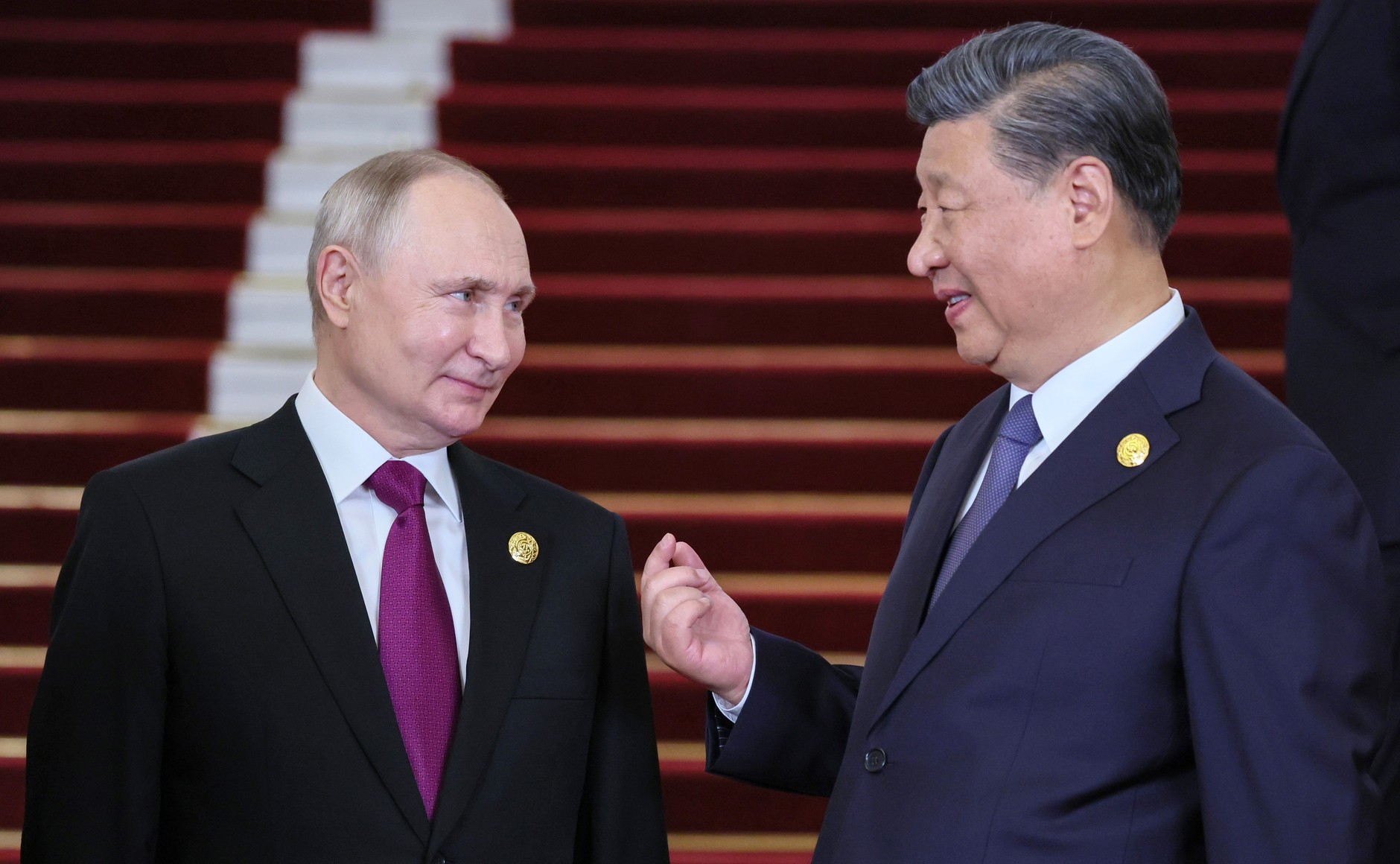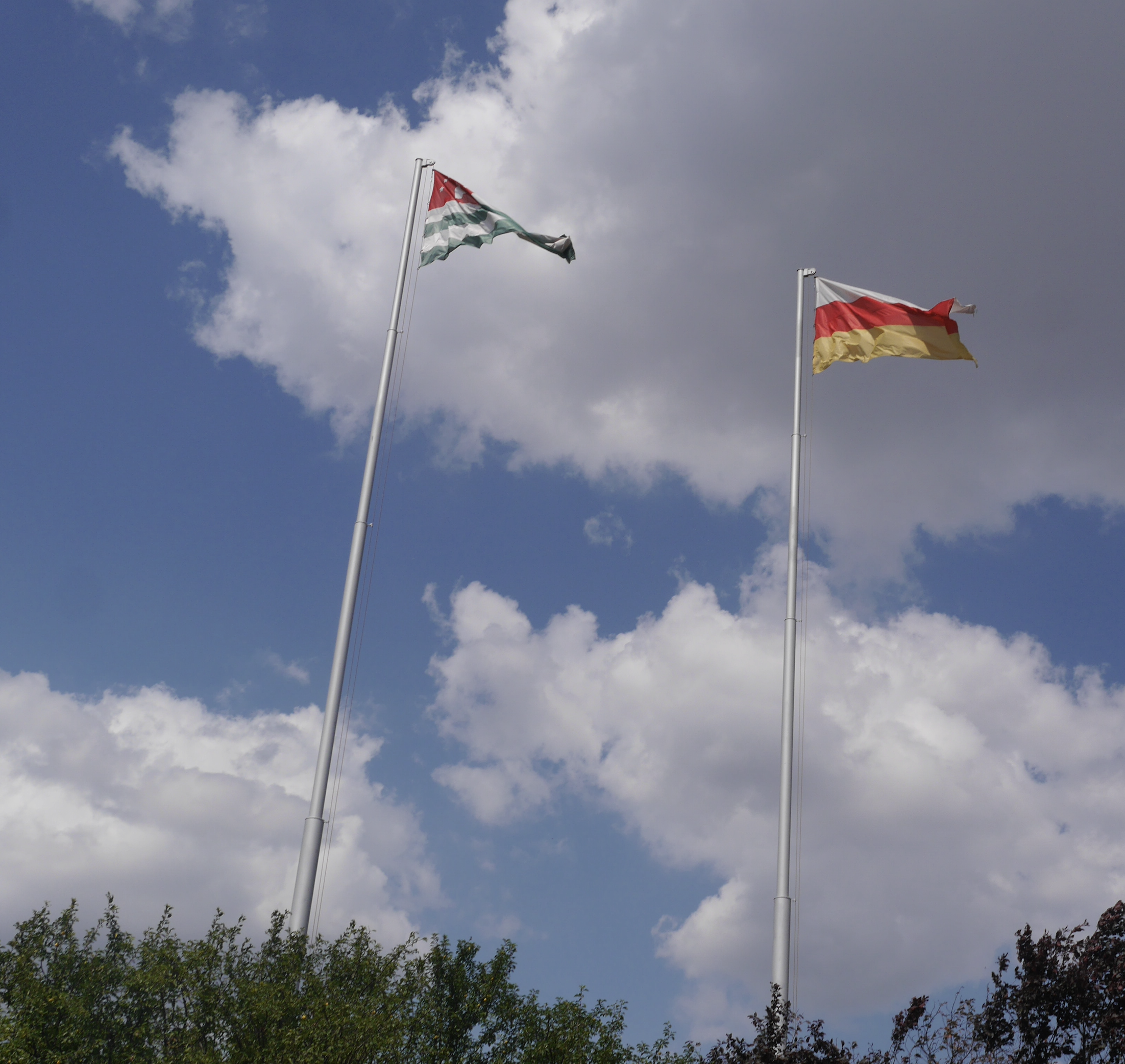
Putin and Xi Meet as Hidden Differences Mount
Putin and Xi Meet as Hidden Differences Mount
Foreign trips are now rare occasions for Russian President Vladimir Putin. As such, it was highly important to him to hold a position above that of the other participants at the Belt and Road Forum in Beijing on October 17 and 18. Chinese Communist Party General Secretary Xi Jinping obliged by making Putin the guest of honor and granting his “dear friend” a three-hour meeting. Xi did not mention the two sides’ “partnership without limits,” the descriptor used during Putin’s previous visit on the eve of Russia’s full-scale invasion of Ukraine in February 2022. Pompous protocol barely sufficed to camouflage the lack of tangible outcomes from the talks. Reaffirmations of personal rapport between Xi and Putin could not quite cover the divergence of views on several key matters (Novayagazeta.eu, October 19).
The most obvious disagreement concerned Putin’s long-cherished proposal for constructing the Power of Siberia 2 gas pipeline from the Yamal peninsula. Gas production in Russia has been curtailed due to Western sanctions, which have limited exports to European markets (The Moscow Times, October 19). Beijing has shown little interest in this mega-project. Alexei Miller, who was appointed by Putin as the CEO of Gazprom in 2000, has been unable to present a detailed business plan for his vision to vastly increase Russian gas deliveries to China (RBC, October 18; Kommersant, October 19). Russia is not fully a part of Xi’s trademark Belt and Road Initiative (BRI). Thus, Moscow’s claims about successfully completing infrastructure projects that complement the massive flow of Chinese investments to Central Asia are far from convincing (Publico, October 19).
According to Putin, his conversation with Xi briefly touched on bilateral relations but covered a broad range of international affairs. Particular attention was given to the ongoing turmoil in the Middle East (Kommersant, October 18). The two autocrats easily agreed on stopping hostilities in Gaza. However, the war between Israel and Hamas has deepened differences between Moscow and Beijing (Russian International Affairs Council, October 20). China seeks to be on the same page with Iran and Saudi Arabia, its two main oil suppliers, and is deeply concerned about the possible horizontal escalation of the localized hostilities (The Moscow Times, October 20). Although Russia has cultivated closer security cooperation with Iran over the past year, the Kremlin does not view the prospect of escalation as a threat but rather as an opportunity to drive up oil prices and increase the revenues from its energy exports (Forbes.ru, October 19).
Putin and Xi agreed on placing the blame for the violent crisis in the Middle East on the United States and Washington’s inability to maintain peace and stability in the current world order (Nezavisimaya gazeta, October 18). Putin is so obsessed with confronting the United States that, once President Joe Biden voiced America’s unequivocal support for Israel, the Russian president felt compelled to abandon the habitual balancing act and support the Palestinian cause (Svoboda, October 12). Biden had good reason to portray Putin as aggressive as Hamas in his speech, which caused outrage in the Kremlin (Meduza, October 20). On October 12, the Chinese Foreign Minister Wang Yi called on “all parties to exercise restraint, de-escalate the situation on the ground as soon as possible” (Fmprc.gov.cn, October 13). Xi later called for an “immediate ceasefire” and the establishment of “an independent Palestinian state” (Voachinese.com, October 20).
Serious differences are growing between the two sides concerning relations with Europe. Xi’s vision is to make the continent a major destination on the geo-economic “road” portion of the BRI, even if most EU leaders opted to skip the most recent forum (Russian International Affairs Council, October 18). Hungarian Prime Minister Viktor Orban was the rare exception, and Putin used him to score a minor point in his game of sowing discord in the West (Rossiiskaya gazeta, October 18). A major setback in this approach recently occurred with the outcome of Poland’s parliamentary elections, as the center-left coalition is set to form a government and integrate more fully with other EU members on foreign policy matters (Republic.ru, October 17). This position is perceived in Moscow as inherently hostile. European Commission President Ursula von der Leyen’s recent declaration that Putin and Hamas are alike has reinforced this perception (RIA Novosti, October 21).
After their meeting, Putin told journalists that he had informed Xi about Russian successes “on the Ukrainian track.” The Russian president’s reassurances seem to have done little to dispel Beijing’s doubts (Kremlin.ru, October 18). Ukraine maintains the initiative in conducting offensive operations on the battlefield. The first strike by the US-supplied MGM-140 Army Tactical Missile Systems (ATACMS) on the air bases near Berdyansk and Luhansk on October 17, the day before Putin met with Xi, cast doubts on the Kremlin leader’s optimistic tone (The Insider, October 20).
While traveling back to Moscow, Putin made a late-night stop at the headquarters of the Southern Military District in Rostov-on-Don and held a briefing with Chief of the General Staff Valery Gerasimov (Meduza, October 20). The picture that circulated after of this duo sitting with blank papers instead of military maps did little to inspire confidence in the quality of Russia’s strategic planning for the winter campaign (Svoboda, October 20). Symbolic defensive posturing can do little to compensate for inadequate capabilities. In this light, Putin’s order for MiG-31K fighter jets armed with air-launched Kh47M2 Kinzhal ballistic missiles to patrol the Black Sea makes little strategic sense (Istories.media, October 18). These experimental missiles can damage Ukraine’s granaries near the ports in Odesa, but they cannot protect the diminished Black Sea Fleet from attacks by Ukrainian naval drones (Focus.ua, October 20).
China is keeping a close eye on Russian naval setbacks in the Black Sea, not least due to Beijing’s import of significant volumes of Ukrainian grain. Xi hardly expected to learn from Putin how to handle the Ukrainian innovations that are altering the course of the war at sea. Instead, the Chinese leader hoped to gauge the degree to which the Russian commander-in-chief maintains effective control over directing the course of the long war. China does not want to see Russia defeated, but it must account for the possibility of tactical Ukrainian successes leading to a breakthrough. The big question for both Beijing and Moscow concerns the sustainability of the West’s support for Ukraine. Both sides hope for a significant erosion in Western resolve, though these sentiments are more ideological than evidence-based. The two autocrats can continue to live in the echo chamber that seemingly amplifies their shared delusions, but inherent mutual mistrust grows between Moscow and Beijing with every unavailing meeting.


